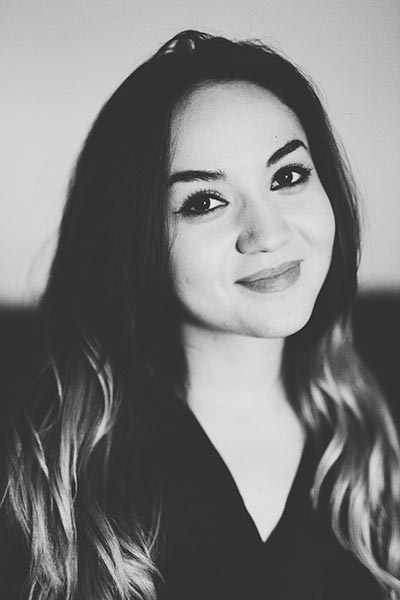‘I’m for Germany because of Groningen’
Her home town of Moscow has suddenly become much more international with the World Cup, says UG psychology graduate Amina Daudova (25). And she likes it. People from all around the world partying together, without politics. Great fun, and good because it brings people together.
The absence of the Netherlands doesn’t bother her. ‘When I was studying in Groningen, I spent most of my time with Germans. I enjoyed everyone’s enthusiasm when there was a big football championship. That’s why I’m for Germany as well as for Russia. Because I want it for my friends.’ She did the international psychology programme in Groningen, and most of her fellow students were German.

Now that she has been back in Moscow for two years, she knows extra well why she loved Groningen so much during her four-and-a-half years there. ‘In Groningen everything is a ten or 20-minute bike ride away. In Moscow it easily takes you an hour and a half to get anywhere using public transport. It is time-consuming, which is why people are so rushed. And they’re always working. Social contact is more complicated.’ But she knows this is also because her student days are over. ‘My alarm goes off at seven every morning, and then I leave for work. All I have time to do apart from work is go to the gym. In Groningen I did all sorts of things alongside my studies, such as taking acting lessons. As I did that in Groningen, I know that that is what I really want here. I’ve been wanting to follow a course to keep my Dutch going for a while now, for instance. That’s what’s good about Moscow: you can do or study just about anything here.’
Daudova works as a psychologist in a home for the elderly. She is responsible for 100 of the 700 residents. After their morning exercises, she does cognitive training with them at 11 in the morning every day. Memory exercises, arithmetic, everything to keep the brain as fit as possible. She uses the rest of the day for individual consultations. Are new residents managing to find their feet? How can she support them as a psychologist?
As a student she didn’t know any Dutch care homes, but when she was back in the city recently, she went and visited one. She was curious. The staff received her with open arms, and straight away that was the first cultural difference that she noticed. In Russia people would say: ‘This is private property!’
The other huge difference was the scale. As the home in Groningen is much smaller, it is much more informal too. And the Dutch staff have more time off, she says. Daudova and her colleagues always have to work on national holidays because all the residents celebrate them together in the home rather than with their families. However, the residents do watch the football games themselves, without the care staff.
Text: Franka Hummels
Source: Broerstraat 5
| Last modified: | 19 March 2020 10.26 a.m. |
